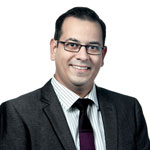
- Don’t play with your Employee Provident Fund savings (EPF):
Whenever employees switch their jobs, either they withdraw the EPF balance lying with previous employer or just leave the amount idle there and forget about it. And to make matters worse, they always use the withdrawn amount for personal expenses.(Also Read: Employee Provident fund rule:5 Important things You should know)
EPF contribution is not only compulsory but safe and sound saving tool available with organised sector employees. Depending on financial profile sometimes EPF savings alone can help you live comfortably, after retirement days. This is not an unnecessary deduction but is a major benefit and the best part here is that employer also contributes equal amount to your savings. You may feel that retirement is very far off but you also have to understand that retirement days are those when you will not be earning anything and you have to make arrangements out of your then corpus so that you can keep on getting the necessary inflow to manage expenses to live the same kind of life style.
Implication: There are generally three kinds of implications to this transaction.
a) Tax effect: If your withdrawal of EPF is within 5 years of your working life, then the whole amount, which otherwise would be tax free, become taxables and added back to your income.
b) Unoperated account: If you have not acted on the balance lying in your EPF account with previous employer than after three years this account will be treated as non-operational and government will stop paying any interest on it.
c) Negative effect on retirement savings: To understand this let’s take one example. Mr X (25) has recently joined a job and his EPF contribution is Rs 5000 p.m. Rate of interest on EPF is 8.5% and his contribution will increase at the rate of 10% p.a. If he keeps on saving till the age of 60 and does not withdraw in between, his EPF balance would be Rs 8.57 crore, but if he keeps on playing with it as was explained earlier and delays actual saving to the age of 35 then his EPF corpus would be Rs 6.52 cr though his contribution at that time would be Rs 25,900 p.m. Just because of his mismanagement he has lost around Rs 2 crore.
What to do – Always transfer your EPF balance to the new employer as and when you switch your job. This will not stop the compounding of returns. Understand the importance of saving towards retirement.
2. Risk management:
Generally the employer covers this aspect of employees by providing them coverage under Group Mediclaim and Group Accident Policy which gives employees the comfort that “All is well”. But in reality if you take a closer look at the benefit, here employer is covering his liability but not your responsibilities. Once you resign or retire, his liability finishes but your responsibilities would still be there. Moreover many of the mis-happenings that are covered under such policies are those which happen during official working hours and some are in office premises, which means that you might not be covered when you are on leave, on holidays, after office hours or most importantly after retirement. Now a days, in order to reduce the cost, employers has also reduced the sum assured or benefits attached to policies and started asking employees to share the cost if they want more coverage.
Implication: In today’s kind of uncertain job scenario and also the limitations attached to specific employer policy this area in personal finance which if not worked out properly may lead you into a big financial mess.
What to do: Do a proper risk analysis of your financial profile and buy separate insurance covers for yourself and your family.
Life insurance: Take a note of your income and buy a sum assured equal to at least ten times of your annual income. If you have some loans running than add the outstanding amount of the same in your sum assured.
Health Insurance: Please understand that after being diagnosed with some medical problem it would be very difficult to get the comprehensive coverage from any company. Moreover there are very few companies which provide insurance to senior citizens. There are other clauses also which you have to understand and it is always better to have a separate health Insurance policy with adequate coverage for yourself and your family.
Critical illness: If you are totally dependent on your employer’s policy, such policies cover the hospitalization expenses only but if your medical problem demands you to get a regular treatment, then your employer might not cover the same. So you must have a separate critical illness plan to get a comprehensive coverage.(Also read: All About a Critical illness policy)
Personal accident policy: You should also have a separate personal accident policy with adequate sum assured which is at least ten times of your annual income to cover the risk of disability.
3. Do your tax planning properly:
This is also a very important area in employees finances as most of their savings are to get tax benefit only. If he does it properly then money can be given right direction to help in achieving long and short-term goals. But most of the employees do their tax saving investments in the January – March period and that too under the pressure from the accounts department to submit proofs and avoid tax deduction.
Implication: This last minute decision can prove to be very costly. As without understanding your requirements, choosing wrong product, obliging someone or just under the influence of friends you are very prone to taking a wrong decision which involves your major savings.
What to do?: If you have worked on the first two steps of EPF savings and risk management then most of your tax savings investments are already done and that too in right direction as both the instruments cover the two integral and important aspects of financial planning. Now you have to understand the products available for your remaining tax savings investments and select any of the same after understanding the risk and post-tax returns of the same.
You cannot make a prudent decision if you are in hurry. So it is always better to start planning your tax savings in April.
I once again reiterate not to consider these advice as substitute to financial planning. Just be disciplined and use your finances judiciously, make informed decisions and you will never fail financially.






 Manikaran Singal is the founder and Chief financial planner at Good Moneying Financial Solutions. He is a CERTIFIED FINANCIAL PLANNER CM and SEBI registered Investment adviser (Regd no. INA 100001620). He’s having 20+ years of experience in financial services space.
Manikaran Singal is the founder and Chief financial planner at Good Moneying Financial Solutions. He is a CERTIFIED FINANCIAL PLANNER CM and SEBI registered Investment adviser (Regd no. INA 100001620). He’s having 20+ years of experience in financial services space.


[…] If I assume Increase in income @ 10% p.a, and rate of return in EPF @8% p.a, than after 25 years the accumulated tax free corpus you will receive would be Rs 37.41 lakh and pension extra. So it’s better if you don’t play around with EPF and keep transferring to the new account whenever you change your job. (Read : Must dos…for corporate employees) […]